Acknowledgements
Guidelines
Acknowledgements are words and phrases like “Okay,” “Sure,” “Alright,” “Thanks,” and “Got it.” Use them to acknowledge acceptance, confirmation, refusal, disconfirmation, correction, and before changing the subject. This reassures the user that they’ve been heard and that your persona is keeping track of the conversation. It also helps the dialog feel fluid and natural.
Avoid overuse by adding randomization and by skipping some acknowledgements in dialogs. The experience will quickly become monotonous and robotic if your persona starts every utterance with “Okay”. For example, after your persona has completed a task, it’s appropriate to randomize among synonyms like “Done,” “Got it,” “Alright,” “There,” “You got it,” and “Sure.”
Note that acknowledgements are not discourse markers, because acknowledgements (1) can stand by themselves, and (2) don’t provide insight into how what follows relates to what came before.
Usage
Acknowledge acceptance.
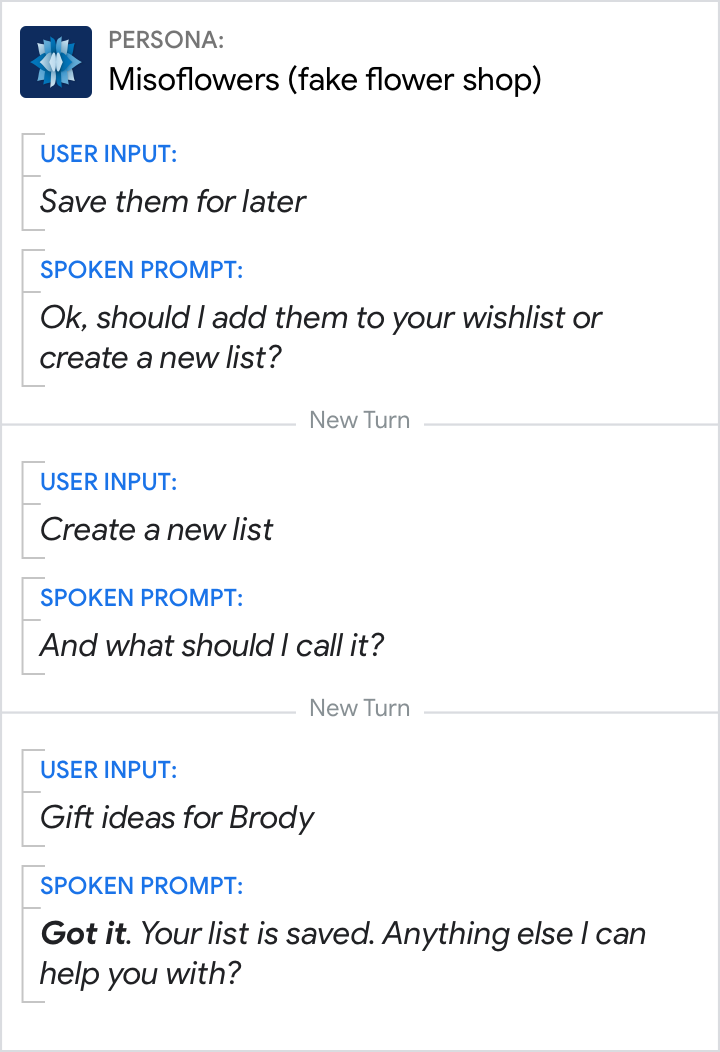
Do.
Words like “Great” or “Got it” acknowledge that your persona heard and saved the list title.
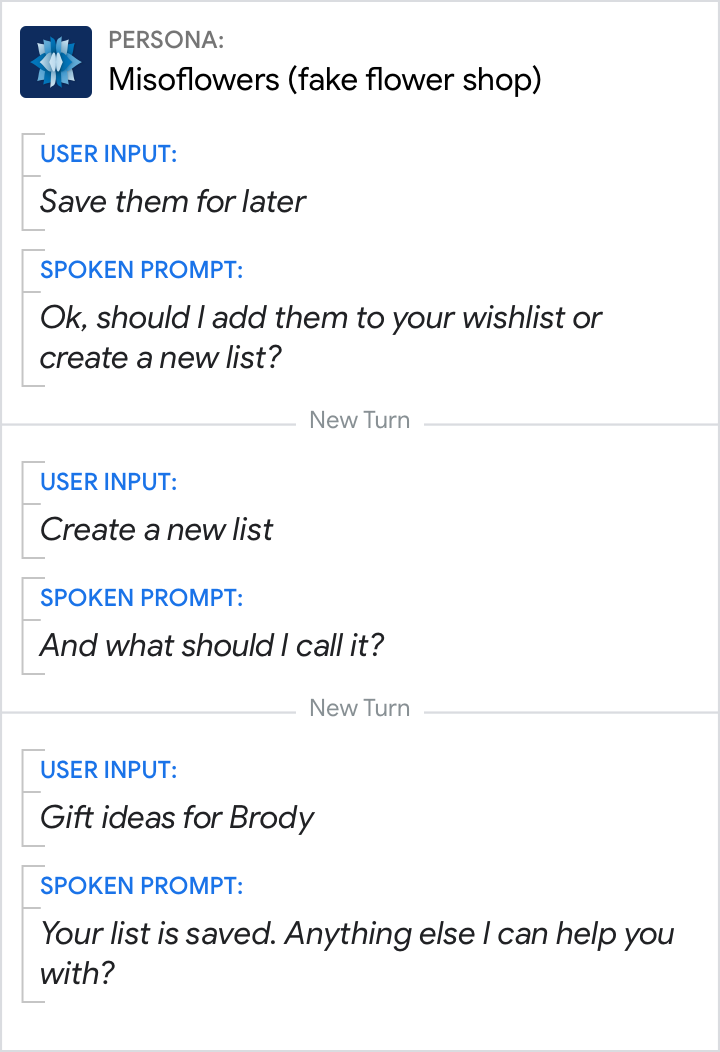
Don't.
Without the acknowledgement, the user feels unsure whether your persona heard and saved the list title.
Acknowledge to confirm.
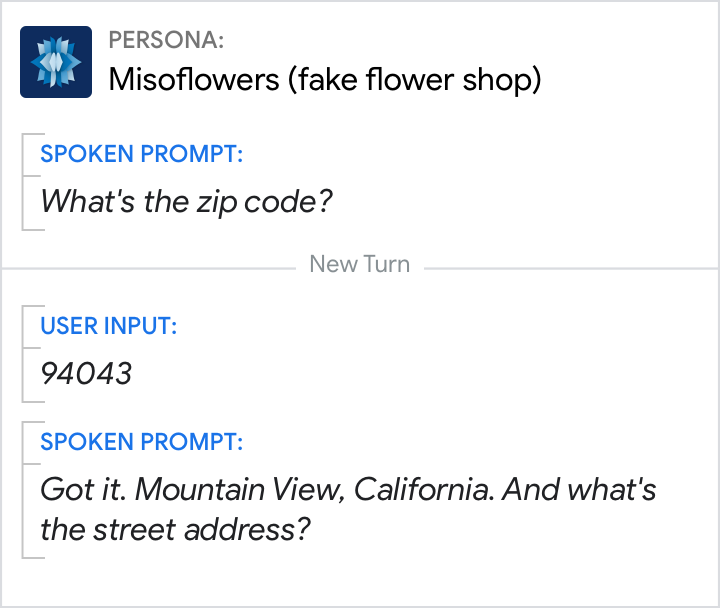
Do.
Acknowledge the user’s input before confirming the location.
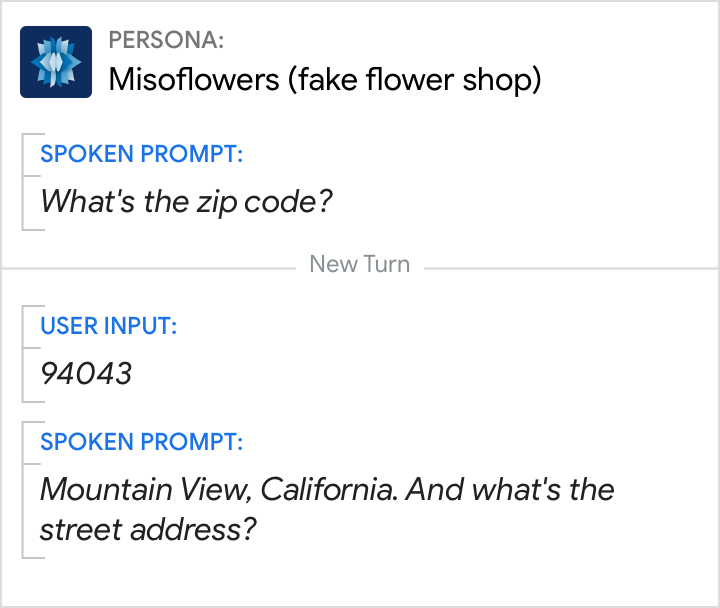
Don't.
Lack of acknowledgement can make the dialog feel abrupt.
Acknowledge refusal.
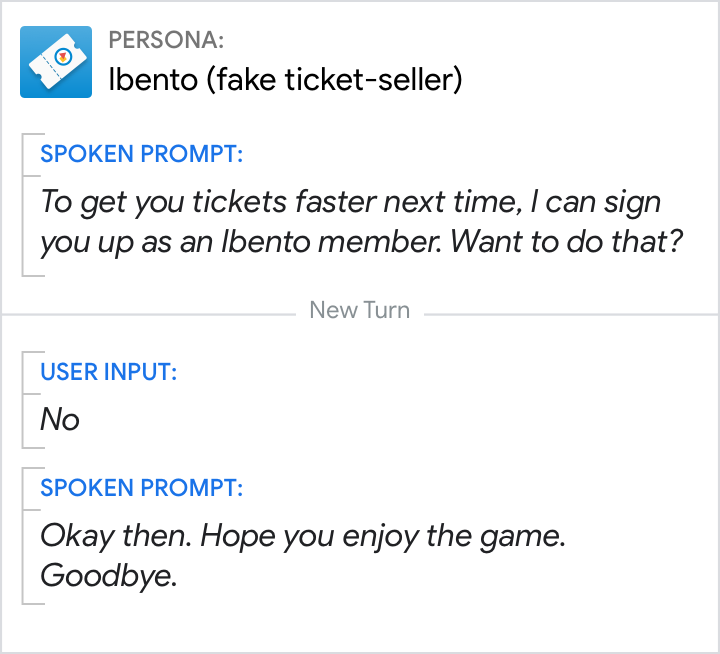
Do.
Acknowledge the user’s refusal before changing the subject with a simple “Okay”, “Okay then”, or “No problem”.
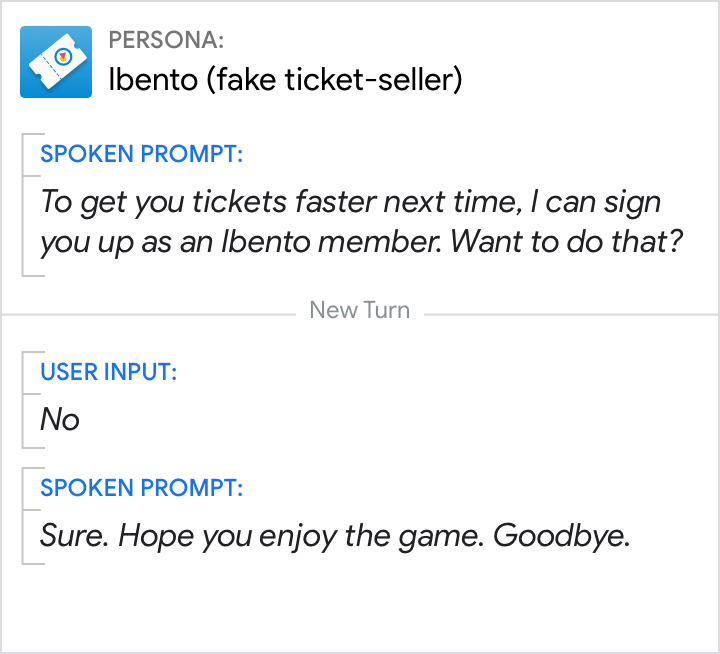
Don't.
Avoid acknowledgements that imply acceptance, like “Sure” or “Got it”, when the user has refused an offer.
